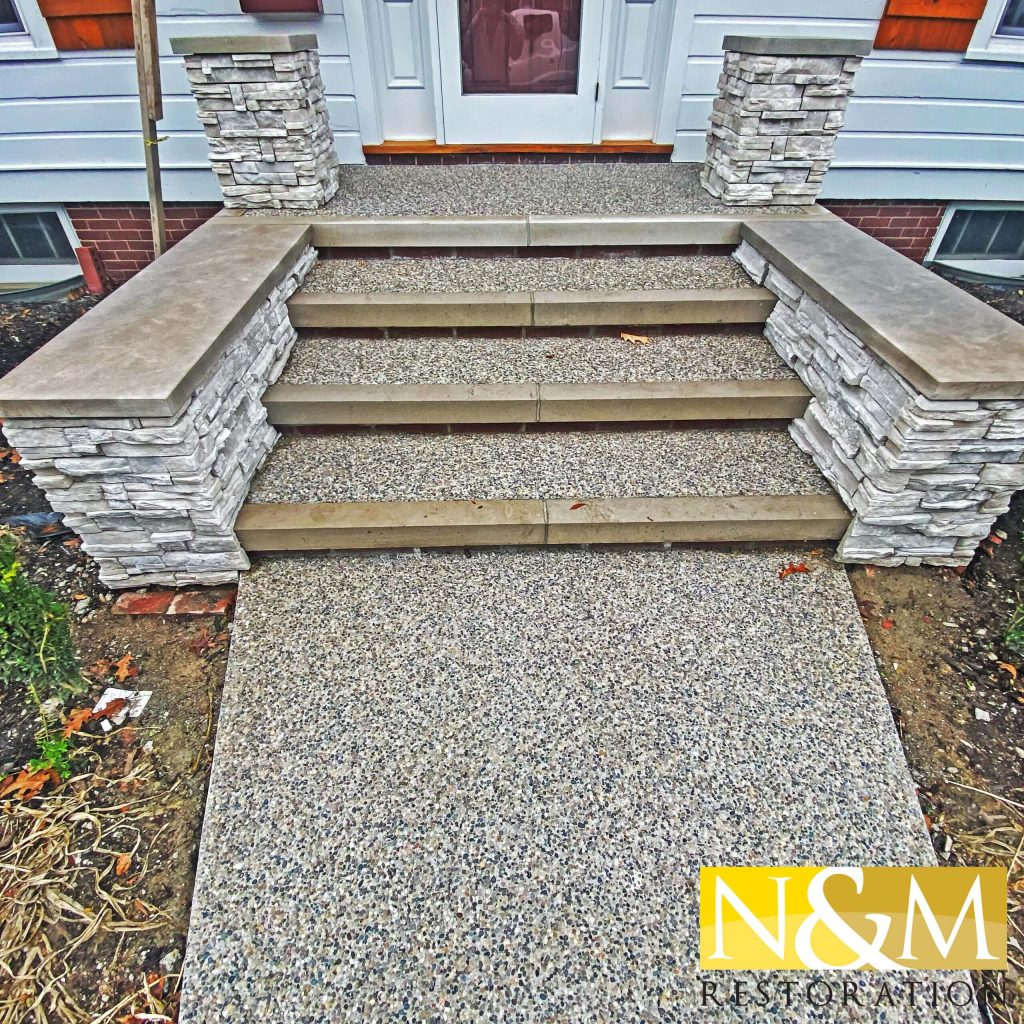WHAT IS THE DIFFERENCE?
To truly compare the options, we need to understand how they are made. Natural stone comes directly from the earth. It is quarried, sliced, and pieced together to create the veneer. The color variations in the stone are the result of thousands of years of compression. No two stones are exactly alike.
Cultured stone is manufactured to look like natural stone. It offers color and texture variations, but not to the extent of natural stone. This man-made product is usually constructed from concrete and aggregate, making it durable against UV rays and precipitation.
WHAT LOOKS BETTER: CULTURED STONE OR NATURAL STONE?
Appearance is subjective, but many homeowners and business owners prefer the look of natural stone veneer. With cultured stone, there will inevitably be areas of repetition, where two identical stones are visible on the same plain. Most cultured stone veneer is made with enough variation to prevent this from being obvious, but if you want each stone to be 100% unique, natural is the way to go.
WHAT TYPE OF STONE VENEER IS MOST DURABLE?
Both veneer options can last for decades with proper installation and maintenance. Some may say that natural stone is more durable because it is designed by nature to fight against weather changes. However, cultured stone has come a long way over the last decade. Manufacturers are continually innovating to ensure their products can stand the test of time.
DOES NATURAL STONE COST MORE THAN CULTURED STONE VENEER?
The cost of natural stone vs. cultured stone largely depends on the materials you choose. There are low-, mid-, and top-tier materials in both categories, and those variations greatly impact the cost. When we visit you for your in-person consultation, we will compare the costs and materials for you to find the best fit for your budget and aesthetic.
HOW DOES MATERIAL IMPACT INSTALLATION?
The steps for installing both are relatively similar, but cultured stone doesn’t require the same type of support as natural stone. Manufacturer stone is lighter than natural stone, so it can be applied to almost any surface. Natural stone typically requires a more durable substrate to support the weight of the materials. The difficulty of the installation may impact your labor costs, but it won’t affect the overall appearance you achieve.
WHICH TYPE OF STONE VENEER SHOULD I CHOOSE?
You can’t go wrong with either option. It really comes down to the look you want, the price you want to pay, and the unique concerns on your property. We can evaluate all of this during your consultation to help you choose the best material. Contact N&M Restoration at (248) 924-9798 to schedule a quote for cultured stone or natural stone veneer.

